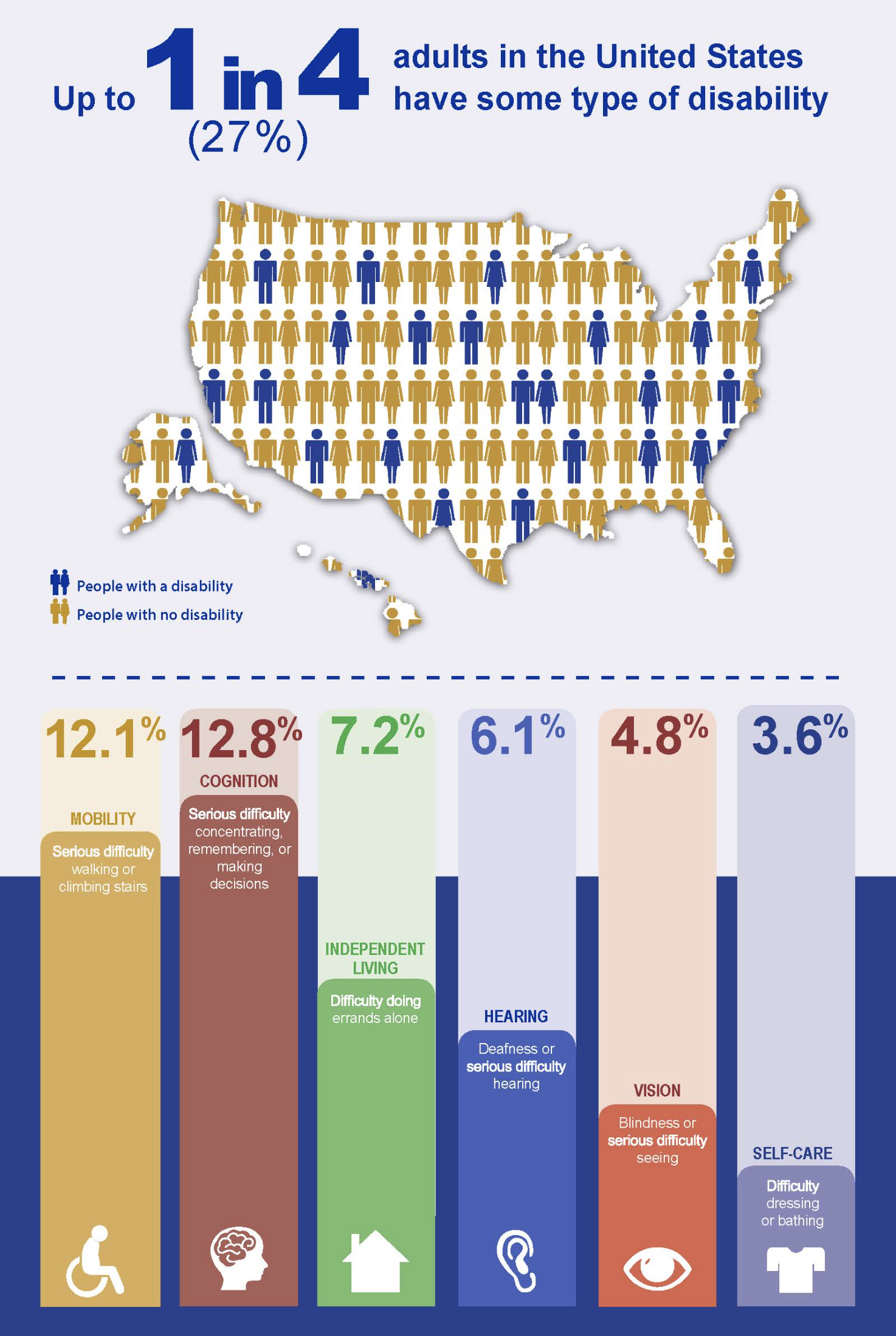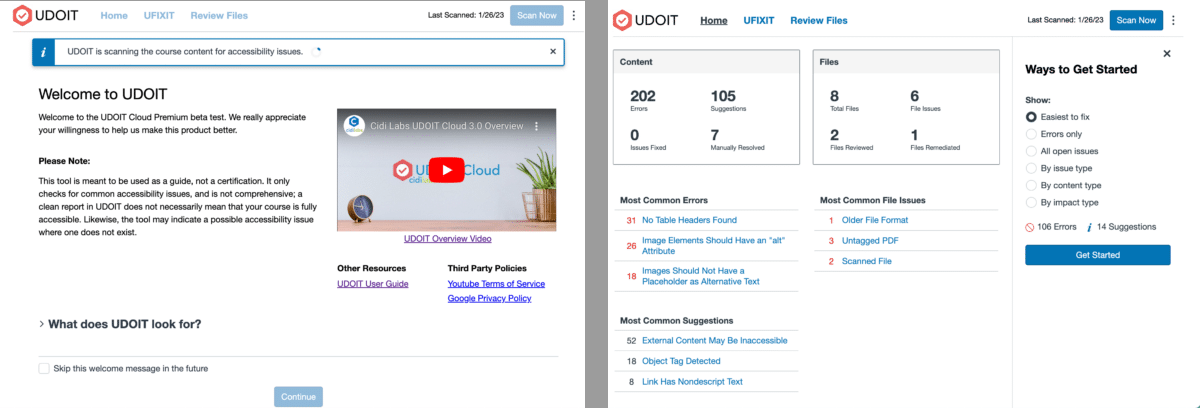

As educators, we know that federal and state laws require our course sites to be digitally accessible on the first day of class. Beyond the legal requirements, though, accessibility work is essential for building an inclusive community that enables all students to be successful.
In 2023, the National Center for Education Statistics released a report that showed many students in higher education have a disability. "[S]ome 21 percent of undergraduates and 11 percent of graduate students reported having a disability," including hearing, vision, cognitive, and motor disabilities. According to the CDC, the general adult population of the U.S. reports an even higher rate, with 27% having some type of disability. Improving the accessibility of our courses benefits all students, including those with disabilities, those using mobile devices, and those studying in a variety of environments. For instance, video captions assist those who cannot hear the video as well as those viewing a video in a loud or quiet space.
COLRS is pleased to announce an upgrade to our toolkit for providing accessible courses. This is another "plus one" strategy to enhance the quality of our courses and improve the experiences of our students!
UDOIT Advantage is an enhanced version of the UDOIT tool. UDOIT - pronounced "You Do It" - stands for the Universal Design Online Inspection Tool. It is a powerful tool available in every UIS Canvas course and helps instructors to create accessible content. Features include:
- Straightforward interface accessed in Canvas courses
- Accessibility report for each course
- Step-by-step guidance on resolving issues, including a convenient one-click quick fix option
- Previews to visualize content appearance post-issue resolution
- Dashboard for monitoring course accessibility progress
- File scanner capable of generating alternative versions of PDF and Word documents
UDOIT will help UIS instructors to take a huge step forward in addressing accessibility issues in courses. Learn more about what UDOIT scans in Canvas courses.
How to Use UDOIT

Click on the UDOIT Advantage link in your Canvas course to start an accessibility scan. Once it is complete, click on the UFIXIT link for step-by-step instructions to fix common issues.
Detailed instructions and video tutorials can be found on the UDOIT Canvas Accessibility Tool page. As always, please reach out to COLRS staff to learn more or for assistance implementing this tool in your course. We are here to help!
UDOIT is another tool to help us develop and maintain accessible courses. The digital accessibility remediation team (DART) remains available help ensure that your courses are accessible for all students. They specialize in remediating documents, captioning video files, and providing course accessibility checks. Get your course on their schedule by emailing colrs@uis.edu.


